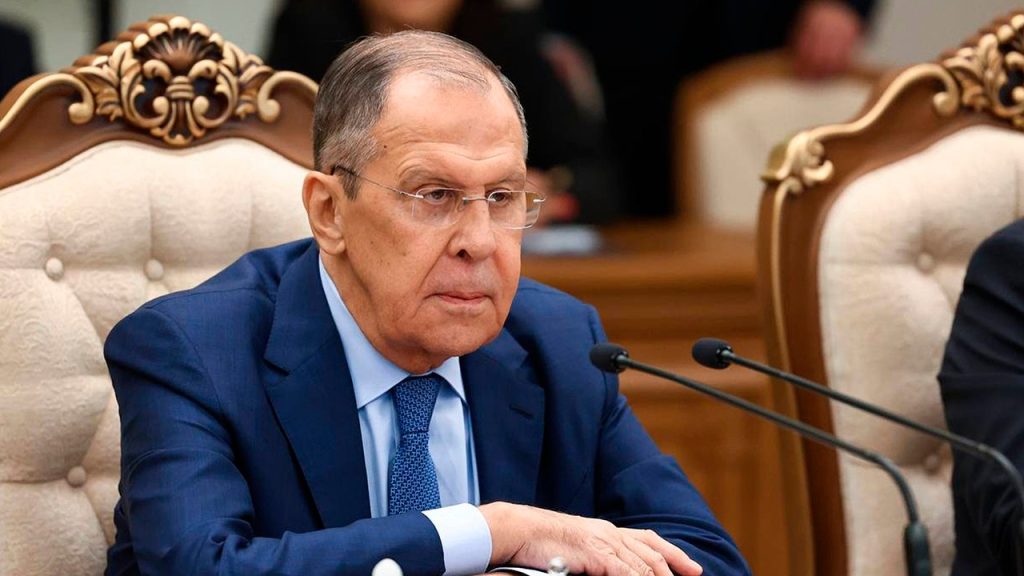Russia’s Lavrov Delivers Sharp Warning to West at UN General Assembly
In a forceful address to the United Nations General Assembly, Russian Foreign Minister Sergey Lavrov issued one of Moscow’s starkest warnings yet to Western powers, framing the ongoing Ukraine conflict as a “real war” being waged by NATO and the European Union against Russia. His speech, steeped in historical references and geopolitical positioning, represented a significant escalation in rhetoric at a time of heightened tensions between Russia and the West. Lavrov’s message was clear: Russia perceives Western actions not as support for Ukraine, but as direct aggression against Moscow itself.
Lavrov began by invoking World War II, positioning modern Russia as the inheritor of the Soviet Union’s legacy in defeating Nazism and establishing a postwar order based on sovereignty and international law. This historical framing allowed him to cast Russia as a defender of these principles against what he characterized as American dismantling of the postwar consensus through military interventions in Yugoslavia, Iraq, and Libya. He extended this critique to the current situation in the Middle East, where, while condemning Hamas’s October 7, 2023 attack, he accused Israel of engaging in “collective punishment” of Palestinian civilians. The Russian diplomat drew parallels between the Gaza conflict and what he portrayed as decades of unchecked Western military interventions across the globe, suggesting a pattern of disregard for international norms when convenient for Western interests.
The heart of Lavrov’s address focused on NATO’s eastward expansion and what Russia perceives as broken security commitments. He emphatically insisted that Russia “never had and does not have” plans to attack NATO countries, dismissing Western warnings about potential Russian aggression as deliberate “provocations” designed to escalate tensions. He specifically called out European leaders for what he termed “false portrayals” of Moscow’s intentions, echoing President Vladimir Putin’s repeated denials of any plans to strike NATO or EU territory. However, this defensive posturing came with a significant caveat: “Any aggression against my country will be met with a decisive response. There should be no doubt about this among those in NATO and the EU.” This blunt warning represents a clear message that Russia views the conflict as potentially existential and is prepared to respond accordingly to any perceived direct threats.
The timing of Lavrov’s address is particularly significant against the backdrop of recent incidents along NATO’s eastern borders. Estonia recently accused Russian jets of violating its airspace, while Polish authorities reported shooting down Russian drones over their territory. The United States responded by reaffirming its commitment to “defend every inch of NATO territory” during Security Council discussions. Lavrov’s speech appears calibrated to frame any potential clash with NATO forces as an existential threat to Russia itself, raising the stakes for Western decision-makers. This messaging also comes as U.S. President Donald Trump has signaled a hardening in his position on Ukraine, telling reporters after meeting with Ukrainian President Volodymyr Zelenskyy that Ukraine should reclaim all its territory – a departure from earlier indications of openness to negotiation. Lavrov’s forceful rhetoric seems designed to counter this shift in U.S. policy, serving as a reminder that Moscow views the conflict not as a distant regional issue but as a direct confrontation with Washington and its allies.
Lavrov expanded his critique beyond Europe, positioning Russia as aligned with what he termed the “global majority” against Western dominance. He highlighted Russia’s participation in organizations like BRICS and the Shanghai Cooperation Organization, as well as citing calls from African and Latin American nations for greater representation at the UN Security Council. This framing attempts to position Russia not as isolated, but rather as a champion for sovereignty and multipolarity against what he characterized as American attempts to maintain global hegemony through sanctions and military alliances. Lavrov specifically criticized U.S. sanctions on Iran as “illegal” and symptomatic of Washington’s broader strategy of “blackmail and pressure,” accusing Western powers of deliberately sabotaging diplomatic options to revive the 2015 nuclear deal. This portion of his address reveals Moscow’s continued efforts to build coalitions with nations outside the Western sphere of influence, particularly in the Global South, by presenting Russia as a defender against perceived Western overreach.
In a press conference following his formal address, Lavrov doubled down on his warnings, responding to questions about Western threats to shoot down Russian aircraft that might violate European airspace. He dismissed President Trump’s earlier characterization of Russia as a “paper tiger,” noting that the president had already retracted that statement. Lavrov then issued what amounts to one of the most explicit threats from a senior Russian official in recent memory: “If there are attempts to down any flying object… over our territory, in our airspace, then I think people will very much regret it, undertaking such an egregious violation of our territorial integrity and sovereignty.” This statement, alongside Ukrainian President Zelenskyy’s warning in his own UN address that failing to stop Russia would unleash “the most destructive arms race ever,” highlights the increasingly dangerous rhetoric from both sides of the conflict. As the war in Ukraine continues with no clear resolution in sight, Lavrov’s combative address to the United Nations serves as a sobering reminder of the potential for further escalation in a conflict that already threatens global security and the post-Cold War international order.


